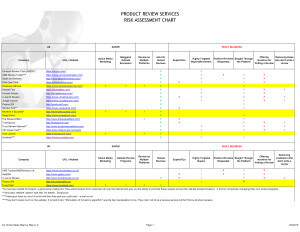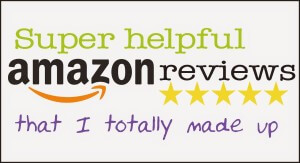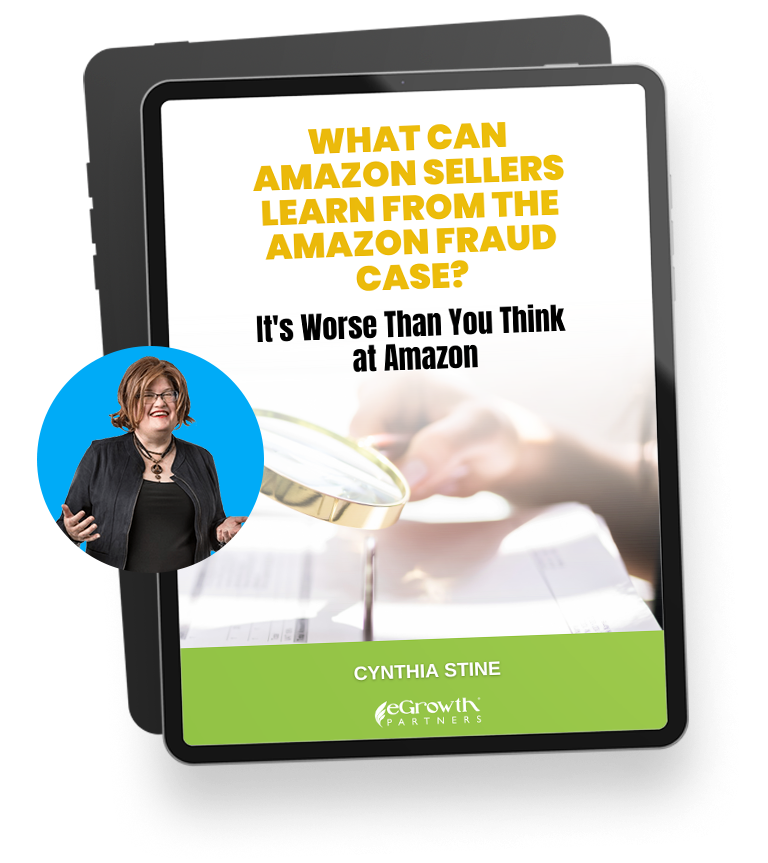After my recent blog post about conducting a safe product review program Amazon style I was deluged with questions so it seemed worthy of another blog post. These are a compilation of questions I’ve gotten. I have some news about a new book I’m working on and news about Amazon’s new ASIN requirements. Lastly, check out my schedule at the end. I host an event every time I travel so I can meet my clients and readers – join me!
Q. Are There Any Product Review Programs You Recommend?
Because Amazon is deliberately vague, there is gray area. I can’t point to any one program (besides Amazon’s) and say “this is completely safe!” for this reason. However, there are some programs that are less risky than others. Some are also scary because their violations are so blatant.
What I did was research over 100 review programs/clubs in the US and UK and look at them for risk. You won’t see all of them on THIS CHART because they aren’t all Amazon focused and so I didn’t include them.
You won’t see all of them on THIS CHART because they aren’t all Amazon focused and so I didn’t include them.
I will preface my chart by stating it may not be comprehensive. The categories listed are the ones that I think are important. This is my opinion and advice to my clients. I don’t represent any product review product. This chart will not tell you which program is most effective. It is focused instead on how they operate. A few of them were very secretive on their websites and I did not sign up to see the “secret sauce.” If you choose to work with any product review company, be sure to consider compliance and safety among your criteria for selecting a service.
Gray marks mean the behavior or technique is vague. Red means the tool/technique is risky and green is safer. The ones highlighted in yellow seem safer to me. Please be clear that I am NOT saying that they are safe or that I endorse them in any way. Their practices, in my mind, are more in line with Amazon’s stated wishes for its reviews. That could change tomorrow if I get a client who is suspended because they used one of these services.
You will notice that I marked quite of few of them for providing incentives. These were sometimes cash like “earn” a gift card by completing reviews. Other times the incentive was more esoteric like they would qualify for more free giveaways, that kind of thing. Because it is not a direct relationship of “write this particular review, get $X dollars”….it is gray. Maybe Amazon is OK with that. I don’t know. It has not yet been tested.
I also marked services that had what I considered a highly targeted audience of professional reviewers. We have seen Amazon suspend sellers for targeting the same reviewers over and over again and going exclusively after professional reviewers (like scraping the Amazon site for reviewers) rather than the typical buyer for their product. However, those were for campaigns the seller was running themselves rather than with a review company. Maybe the review company’s reviewers are broad enough to satisfy Amazon. Again, I don’t know yet. That’s why the check marks are gray instead of red. Could be fine. Might not be.
Some product review companies will kick a buyer off if they don’t leave reviews in a certain amount of time. They’ll get reminders, etc. and if they don’t comply they are out of there. In my mind, the fact that they are obligated is against the spirit of what Amazon intends. Will Amazon suspend for it? I don’t know. Not that I’ve seen yet.
Most product review companies tell reviewers they want honest reviews and most insist on the disclaimer. A few, however, were only paying it lip service. All the “examples” they gave were 5-star highly complementary reviews. These were templates for quick reviews that would satisfy their obligation. Those have no green “X” and you should be careful.
Red marks DO correlate to behaviors that have suspended sellers in the past or that are expressly against Amazon’s TOS like “requesting positive reviews.”
In addition, there were ones that strongly skewed the reviewers towards positive reviews even to the point of having the reviewer call them (the review company) first if they were leaning negatively. I see that as slippery behavior, a likely violation, and I marked those with a red X. Kind of like when Bill Clinton said, “it depends on your definition of ‘is’ is.” Weasely. That’s the word I’m looking for.
I have a column to show you which programs have reviewers buy through the platform. There is nothing inherently forbidden about this, but it can be risky. Not going through the platform is safer.
Lastly, a couple of the included companies are not typical review companies but I included them because they offer an alternative to sellers who are looking to boost their rankings (ZonBlast) or get reviews off the platform as well (Trust Pilot).
Q. Can’t You Just Tell Us Which Companies Are OK?
The day Amazon publishes a list of approved product review companies, I’ll share it with everyone. I’m not holding my breath. What everyone needs to understand is that a product review program of any kind is a manipulation. You are trying to artificially speed up the organic process of product reviews and position your product in front of the competition. This is also called capitalism and good business, I get that. As far as Amazon is concerned you can do anything you want to create advantage for your products – until it affects their platform and the buyer experience.
Q. Does Amazon Have A Preference Between Free Giveaways Or Discounts?
 Amazon talks about free giveaways in its terms of service (TOS) and examples. The free giveaways it recommends are ones where you (the seller) mail the products to the reviewers WITHOUT going through the Amazon platform. Think of it like free samples at a grocery store or the beauty counter; or free books sent to book critics in the media.
Amazon talks about free giveaways in its terms of service (TOS) and examples. The free giveaways it recommends are ones where you (the seller) mail the products to the reviewers WITHOUT going through the Amazon platform. Think of it like free samples at a grocery store or the beauty counter; or free books sent to book critics in the media.
To clarify the analogy: In the case of books sent to reviewers they are under no obligation to leave a positive review. In fact, there is no incentive for them to review at all if they don’t feel a book is interesting. It is this very independence that gives these critical reviews their value to the reading public.
Amazon does not specifically forbid sellers from using discounts to drive reviews, but looks at discounts to drive sales while free giveaways are used to drive reviews. Using a discount code for both seems to be OK as long as it is disclosed.
I have not seen any seller suspended for offering deeply discounted products. I have seen them suspended for excessive reviews, manipulation of platform, lack of disclosure and for paying for reviews.
Q. Wouldn’t It Actually Be BETTER To Go Through The Amazon Platform So Amazon Will Know That Products Are Being Shipped To Reviewers?
Not necessarily. For one thing, Amazon’s examples do not include using a discount code, they specifically cite the seller shipping directly to the reviewer. So even if you plan to use a discount code, they may prefer your reviewers to buy from you – it is unclear. Secondly, this can backfire on you. I have a client now who Amazon was able to easily call out for manipulating the platform and paid reviews BECAUSE the order had gone through the platform. Reviewers were posting their reviews within a day of the order. Clearly they had not had time to receive the product yet and use it.
The same holds true if the reviewer posts a review and doesn’t disclose that they got it for free or at a deep discount. If the order went through Amazon and it was for a 99% discount as so many of them are, Amazon can check the reviews to see if they have the disclaimer. If they don’t, you are in trouble.
Q. What Happens To The Reviews If Amazon Warns Or Suspends You For Improper Product Reviews?
You have to give them all the reviews – the name of the reviewer, what they posted and everything. These will ALL be removed. You also need to disclose the name of the review company you were using.
Q. At What Discount Percentage Does Amazon Consider A Review To Be Unverified?
In the past, sellers would manipulate the platform by having reviewers buy through the platform so their reviews would appear as “verified.” Amazon is wise to that tactic and now automatically counts any deeply discounted product as “unverified.” Amazon does not share what the cut off percentage is. I’ve heard that greater than 49% is the line, but that is anecdotal from other sellers. To be safe, you should ask all reviewers using a discount coupon to disclose they bought the product at a discount.
Q. What Is The Big Deal About SuperURLs? They Work Great!
A superURL manipulates the platform by enforcing your keywords. It uses the same URL that Amazon uses internally to indicate how a potential buyer found your product. Obviously, if Amazon sees a lot of the same keyword being used and then purchases, it will move your listing up in the ranks. This is a very clear and obvious manipulation to me. Amazon’s policies state, “any attempt to manipulate the search and browser experience is prohibited.” Beware. Even if you simply tell your potential reviewers or buyer to search by certain keywords (beyond the name of the product/manufacturer) you are manipulating the platform.
uses internally to indicate how a potential buyer found your product. Obviously, if Amazon sees a lot of the same keyword being used and then purchases, it will move your listing up in the ranks. This is a very clear and obvious manipulation to me. Amazon’s policies state, “any attempt to manipulate the search and browser experience is prohibited.” Beware. Even if you simply tell your potential reviewers or buyer to search by certain keywords (beyond the name of the product/manufacturer) you are manipulating the platform.
Q. What About All Those Product Review Companies That Use SuperURLs And Claim To Be Compliant?
1) It is my belief based on Amazon’s past actions that their days of using superURLs are numbered;
2) There are different rules for different countries; and
3) if everybody else jumped off a cliff would you join them? Don’t be a lemming!
In the UK and Europe, I noticed that many of the review companies were highly risky. In fact, we had to search for DAYS to find one that wasn’t using superURLs or other risky behaviors. We’ve noticed in our work with Amazon UK that the UK and Europe platforms tend to be a year or so behind Amazon.com in terms of both capabilities and rules. There has not been the same crackdown there that we’ve seen here – yet. One day their algorithm will get tweaked and we’ll get a flood of UK sellers suspended for improper product reviews. I have no doubt of this. Most of my clients over there are looking for a better solution. They don’t want to be suspended.
Q. How Does Amazon Know That I’m Using A Reviews Service?
Amazon sees the IP address your buyer is coming from. If your reviewers are stopping at a website to pick up a code and then clicking to buy the product or immediately going to Amazon to buy that product, they will see that pattern. Another reason not to use a superURL.
They also notice if they see the same reviewers over and over again with free or discounted product reviews. If a reviewer takes your deal for vitamin C, for example, don’t also give them Garcinia Cambogia. If that same reviewer reviews a lot of supplements by other sellers, Amazon will know they are a professional reviewer that is doing it to get free product via a reviews program.
Additionally, once a seller is suspended and gives up their reviewers to Amazon, Amazon now has that reviewer on a watch list.
Q. Amazon Removed A Bunch Of Reviews From One Of My Products And I Can’t Figure Out Why. I’ve Not Been Warned Or Suspended.
Quite possibly it was because these reviewers had been identified as abusing the platform and all their reviews were taken down.
Q. Can Reviewers Get Suspended For Abusing Amazon Reviews Policy?
Yes. That is why it behooves them to use the disclaimer language in their reviews. It is not just the seller who is on the hook for compliance. I imagine they get a warning first and instruction on how to leave a review, but buyers lose their privileges every day for not following Amazon’s rules. If the reviewer is also a seller, they can lose their selling privileges at the same time.
Q. I Got An Email Through The Amazon System From A Reviewer Offering To Create A Video Review For Me In Exchange For Free Product. Is That OK?
The reviewer is using the message platform improperly. I usually report them (there’s a button for you to do that on the email). Amazon policy states that you must give them the free product FIRST before asking for a review. It is NOT an exchange. They state nothing about the situation where the reviewer approaches YOU with an exchange proposal, so that is gray area.
Common sense tells me that it could be a problem…but probably more for you than Amazon.
If a guy walked up to you on the street and promised you that he would tell 100 of his friends about your product in exchange for a freebie, would you do it? Probably not without some investigation, right? If the guy is a reporter for a major newspaper? Sure. But that’s not who is contacting you through the platform. Your guy is supplementing his income with freebies.
You can give him a free product if you want. Just be sure that you ship it to him directly (not through the platform), that you gather all his contact information, that you tell him to disclose (including sample language) and that you keep an eye out for his review to make sure he complied. Tell him it needs to be an honest review. Will he actually write a review? Who knows? If he doesn’t, you are out of luck. Keep track of the letter you send with the product so you can prove to Amazon that your actions were above board if you need to.
Q. I Have A List Of Top Amazon Reviewers Scraped Off Of The Website. Is It OK To Offer Them Products For Review?
 No. Amazon does not approve of people scraping information off their site or contacting buyers inappropriately to ask for reviews. We have seen sellers suspended for this.
No. Amazon does not approve of people scraping information off their site or contacting buyers inappropriately to ask for reviews. We have seen sellers suspended for this.
Q. Why Would Amazon Provide Reviewer Contact Information On The Website If They Didn’t Want Us To Use It?
Spoken like a true seller! Remember who Amazon exists for? That’s right – the BUYER. Amazon lets buyers check out other reviews posted by a reviewer to understand their bias and even gives them a safe way to contact them for clarification on their review. Whenever you come up with a brilliant idea, be sure to run it through your Amazon filter and think like they do – how does this benefit the buyer?
Q. I’m Worried About Other Sellers Buying My Product At A Discount And Then Selling Against Me On The Platform. Does That Happen?
Yes, it does. Some of the programs I looked at were very careful to tell reviewers that this was forbidden and to kick them out if they did it. In addition, some programs make it so the reviewer can only buy one product at a time. When looking at a program, be sure to ask them their policy on this and how they work with their reviewers.
Q. Just How Serious Is Amazon About Product Reviews?
Very. Just ask the product review companies it sued in 2015. I can tell you almost to the day when Amazon received the lists of customers from these companies, because a whole bunch of sellers got suspended and were required to turn over their reviewers and reviews to Amazon in order to get reinstated. If I were a product review company and I got a stern letter from Amazon’s lawyers, I’d roll over and submit immediately. They’ve already proven just how much the issue matters to them.
The Final Word On Product Reviews
Just kidding. I’m sure there will be more questions. But here’s what I’d like to say to the community.
Of all the conversations I’ve had with sellers about reviews and their review programs not one of them was concerned in the least about the quality of the review or what the review actually said. It was all about the stars. I’ve seen a lot of these reviews (my clients have to turn them over to Amazon) and they were utter crap for the most part. They weren’t honest, they weren’t specific and they weren’t well written. It was a clear transactional thing. I got free product, I need to post 4 or 5 stars and say “I love it!”
The sellers didn’t care because this was just a product to them. They weren’t invested in their own brands enough to care about their corporate reputation or what buyers actually thought about their products. Many of them were basically selling commodity products with a fancy label on it. I find this disheartening. I’ve spent decades bringing unique products to market for companies big and small where the results actually mattered and their reputation was everything. They worked hard to have a quality product and a sterling reputation. Their products had to survive everywhere not just on Amazon. Many sellers just don’t give a damn and then they wonder why Amazon comes down on them like a ton of bricks.
I’m a seller advocate through and through, but I agree with Amazon about product reviews. Throw away reviews devalue the buyer experience and make the platform less trustworthy. Whatever program you decide to implement for your private label or exclusive products, filter it through the Amazon lens before you lay down your money. Don’t believe what review companies tell you about being compliant without your own investigation. Anybody can throw up a website (and some of the smaller ones I looked at were incredibly unprofessional and light on information). Be diligent. Remember what the ultimate goal is: quality reviews for the buyer so they will feel comfortable buying from you.
Best Practices For Customer Service
I’m excited to announce that my company Online Sales Step by Step LLC is collaborating with Cascadia Seller Solutions to create a “Best Practices” book on customer service for Amazon sellers. This is our answer to the new customer satisfaction and returns metrics.
What both our companies have realized is that many of our clients are struggling with delivering consistently high quality customer service to Amazon’s buyers. Many are experiencing growing pains from rapid growth, some have never built a business before, others don’t have internal expertise on how to provide outstanding service to buyers.
 The book is due out in the Fall. In the meantime, Emily has written The Seven Deadly Sins of Customer Service to give sellers food for thought. Get your free copy and be on the list to be notified first when the book is ready!
The book is due out in the Fall. In the meantime, Emily has written The Seven Deadly Sins of Customer Service to give sellers food for thought. Get your free copy and be on the list to be notified first when the book is ready!
Cascadia’s Emily Murray worked for 5+ years at Amazon and was one of their top customer service agents. She is contributing strategies, templates and advice to the book. Our joint goal is to help fast-growing sellers implement best practices into their companies and make their customer service operations easier to manage.
Get Clean, Stay Clean With Amazon
Our new Get Clean Stay Clean services are helping sellers avoid suspension and save money! We’ve been refining our service options. What we learned is that sellers who use our service to clean up their accounts and monitor their accounts for problems eventually run out of suspension problems! It is a high class problem to have.
What we’ve done is add other service for our clients to help with their accounts including hunting down reimbursements that Amazon owes them. One of our clients got a $5,000 surprise in March because of it.
We’ve also started to break out our services based on the type of seller you are:
Basic – $250 per month. For the hands-on seller or the seller with a team. Includes:
• Weekly account monitoring and early warning report
• Minor account clean-up (2-3 hours a week) like feedback removal (up to a year back), suppressed listings, enhanced listings, reconciliations, reimbursements, etc.
• Emails to all your “negative returns” to determine why they returned their products
• 10% discount per month towards any future suspension (god forbid) up to 50% off
• 15-20 minutes a month of consultation time to review questions, issues, your reports, etc.
Concierge – customized. For the hands-off seller who says “just take care of it,” includes:
• Everything above
• We take action on your problem ASINs
• Customized services ranging from handling your customer service, advanced admin or account clean up, ASIN reinstatements and more.
• Extra consulting time per month
• Prices determined by the time required. Starting from $500 per month.
In the short time since we launched this service, we’ve seen amazing account transformations from  dozens and dozens of inventory problems and negative returns to “Mary Poppins” reports – “Practically Perfect in Every Way.”
dozens and dozens of inventory problems and negative returns to “Mary Poppins” reports – “Practically Perfect in Every Way.”
If you want concierge, contact us after signing up and we’ll discuss your particular needs.
Just to be clear, our focus is suspension prevention first and foremost. There are good services for those wanting a VA for sourcing or bookkeeping, etc. We help with issues that can impact your metrics like customer service, product quality, policy violations, listing improvements, etc.
April Excursions
Dallas is the place for international sellers this month! Barrington McIntosh and the MM8 group are putting together an exciting program teaching sellers how to source from overseas and to sell in international Amazon marketplaces April 14-16. I’ll be making a brief guest appearance.
 Springtime in the Rockies is the best time of the year! Come visit me in Denver during the Rocky Mountain Reseller Conference April 29-30! I’m hosting a brunch get together for my clients and readers on Sunday after the conference. Please RSVP now, I’ll send you exact details later.
Springtime in the Rockies is the best time of the year! Come visit me in Denver during the Rocky Mountain Reseller Conference April 29-30! I’m hosting a brunch get together for my clients and readers on Sunday after the conference. Please RSVP now, I’ll send you exact details later.




